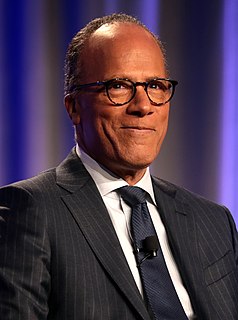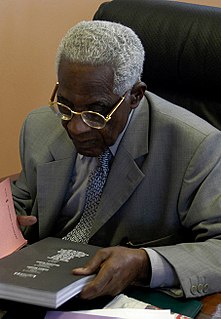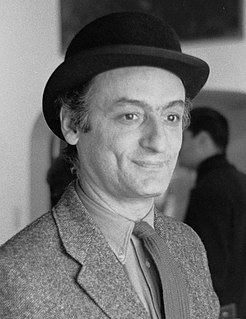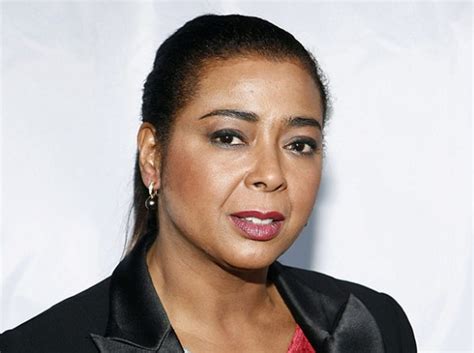A Quote by Herman Cain
They say African Americans. I say black people. I've only been to Africa once. I've been in America all my life!
Related Quotes
My biggest inspiration is black America and what they've done in the arts. I have always felt like an outsider in America, and what black Americans have done to add their chapter to this book called the American dream, and to be so unapologetic and true, and have added so much to art and culture in the world. Some of the greatest inspirations in my life have been black Americans. And I just wanted to say thank you. They've been a huge inspiration, to myself and this country.
Cultures, when they meet, influence one another, whether people like it or not. But Americans don't have any way of describing this secret that has been going on for more than two hundred years. The intermarriage of the Indian and the African in America, for example, has been constant and thorough. Colin Powell tells us in his autobiography that he is Scotch, Irish, African, Indian, and British, but all we hear is that he is African.
When I turn on my radio, when I hear that Negroes have been lynched in America, I say that we have been lied to: Hitler is not dead; when I turn on my radio, when I hear that Jews have been insulted, mistreated, persecuted, I say that we have been lied to: Hitler is not dead; when, finally, I turn on my radio and hear that in Africa forced labor has been inaugurated and legalized, I say that we have certainly been lied to: Hitler is not dead.
Many White people are not sensitive to the kind of abuse that African Americans, especially younger African Americans, receive at the hands of police officers and police departments. I think for most Whites their experience with the police has been good or neutral because they don't interact with the police as much as those in the Black community.
America has never had a very wide vocabulary for miscegenation. We say we like diversity, but we don't like the idea that our Hispanic neighbor is going to marry our daughter. America has nothing like the Spanish vocabulary for miscegenation. Mulatto, mestizo, Creole - these Spanish and French terms suggest, by their use, that miscegenation is a fact of life. America has only black and white. In eighteenth-century America, if you had any drop of African blood in you, you were black.
I would hate to say as a non-African-American person that it would be wrong for a black person to direct white people in a movie. Wouldn't that be awful of me to say that? The only sympathizing thing I might say for people that want to [grumble] is that a filmmaker should have an understanding for the place where the people you're portraying are coming from.

































